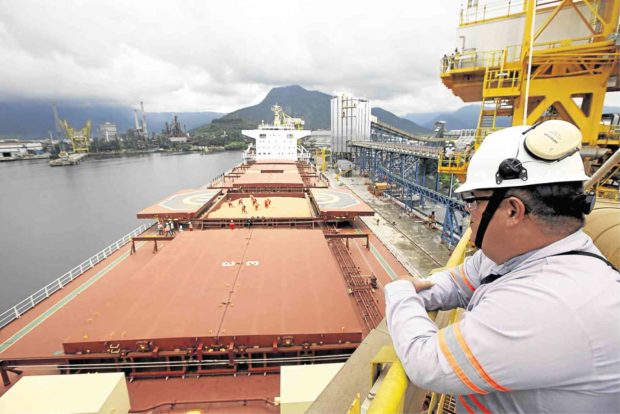MANILA, Philippines — President Ferdinand Marcos Jr. has certified as urgent the enactment of the proposed Magna Carta of Filipino Seafarers, which will specify their rights and ensure their welfare.
In a letter dated Sept. 25 to Senate President Juan Miguel Zubiri, the President raised the need for the “immediate enactment” of Senate Bill No. 2221, titled “An Act Providing for the Magna Carta of Filipino Seafarers,” in accordance with Article VI, Section 26 (2) of the 1987 Constitution which exempts bills passed by either chamber of Congress from the three-reading rule.
The Presidential Communications Office (PCO) said in a statement that the certification aims “to address recurring deficiencies in the domestic laws pertaining to the training and accreditation of thousands of Filipino seafarers which endanger their employment in the European market, in particular, and the global maritime arena, in general.
International standards
“The President also said that the bill guarantees to the international community that the Philippines will comply with its obligations of ensuring that Filipino seafarers’ training, facilities, and equipment are at par with the international standards and those set by relevant international conventions,” the PCO said.
The House earlier approved its version of the Magna Carta of Filipino Seafarers, House Bill No. 7325, on its third and final reading on March 6. The bill is currently pending in the Senate, with a committee report undergoing amendments as of Monday.
Attending the Legislative Executive Development Advisory Council meeting in Malacañang last week, Zubiri said the Magna Carta was among 20 priority measures that Mr. Marcos urged Congress to pass by year-end.
Zubiri expressed hope that the bill will be passed on third reading this week.
Top source
In 2021, the Philippines was reported as the top source of seafarers in the world, according to the United Nations Conference on Trade and Development.
The country deployed more than 400,000 Filipino seafarers overseas, on average, from 2016 to 2021, according to the Maritime Industry Authority (Marina).
But the European Maritime Safety Agency (Emsa) had earlier flagged the Philippines for not aligning with international maritime safety standards.
In 2022, the European Union (EU) cited deficiencies in the country’s seafarer training and education, warning the government that Filipinos could be denied deployment due to a lack of Emsa-certified licenses.
23 discrepancies
The Philippines has failed to pass the Emsa compliance with the International Convention on Standards of Training, Certification and Watchkeeping for Seafarers (STCW) since 2006.
A 2020 Emsa audit found 23 discrepancies, including the lack of facilities, equipment, and simulators for training seafarers as well as the absence of procedures for students who have completed their onboard training in the different maritime higher education institutions.
President Marcos assured EU officials in December 2022 that the government was working to address these certification issues.
He also ordered the creation of an advisory board to address not only possible job losses for about 50,000 Filipinos in EU-flagged vessels but to also address the concerns of about 600,000 seafarers worldwide.
‘Concrete progress’
In a March 31, 2023, letter, Director General Henrik Hololei of the Directorate General for Mobility and Transport of the European Commission told Marina that the Philippines had shown “concrete progress and improvement” in complying with the requirements of the STCW.
“The outcome of the analysis allows the EU to extend the recognition of the Republic of Philippines STCW system. Nevertheless, the services of the European Commission consider that there are still issues to be addressed,” Hololei said in his letter.
Some proposed measures that seek to improve the state of maritime education while protecting the welfare of seafarers include the enactment of the Magna Carta of Seafarers.
